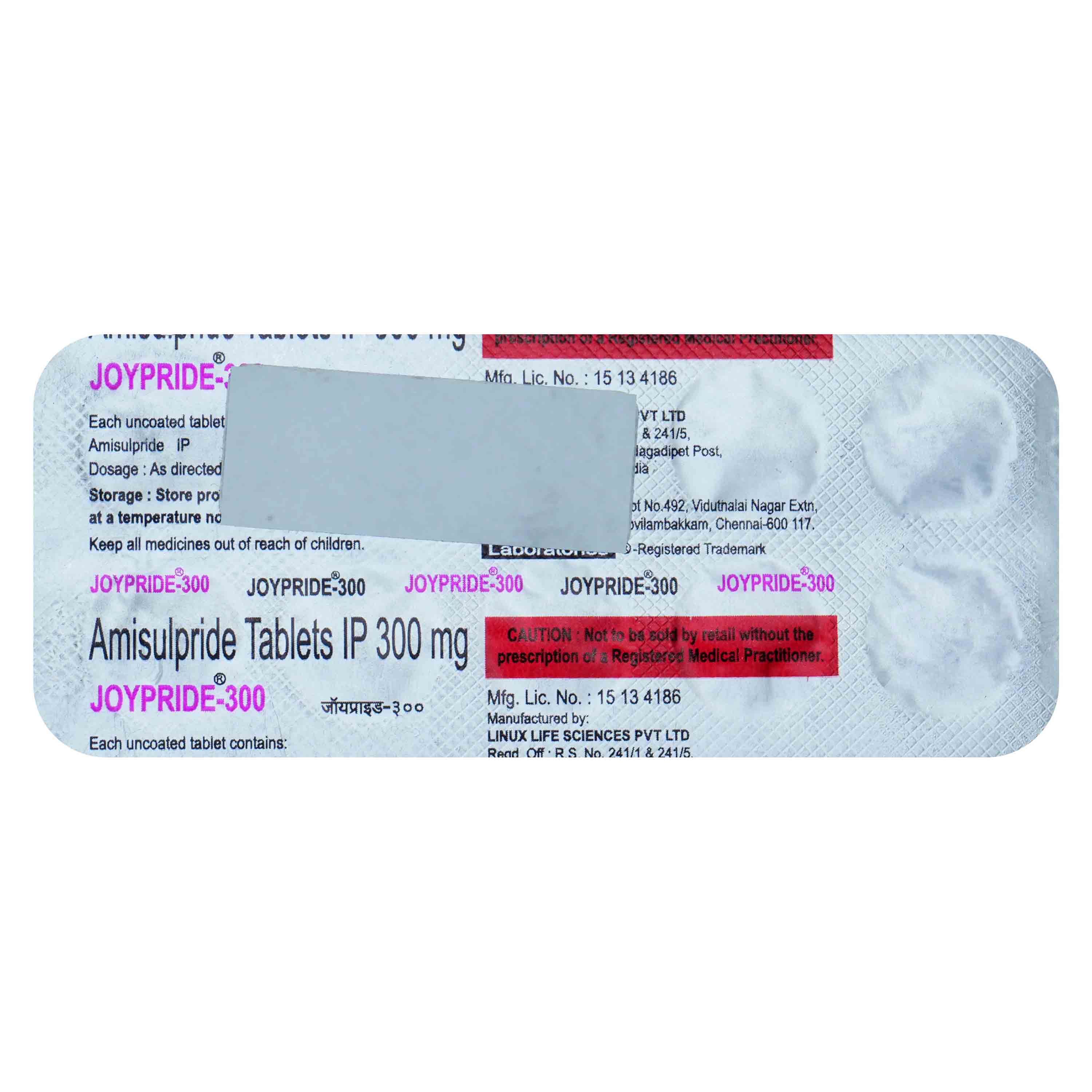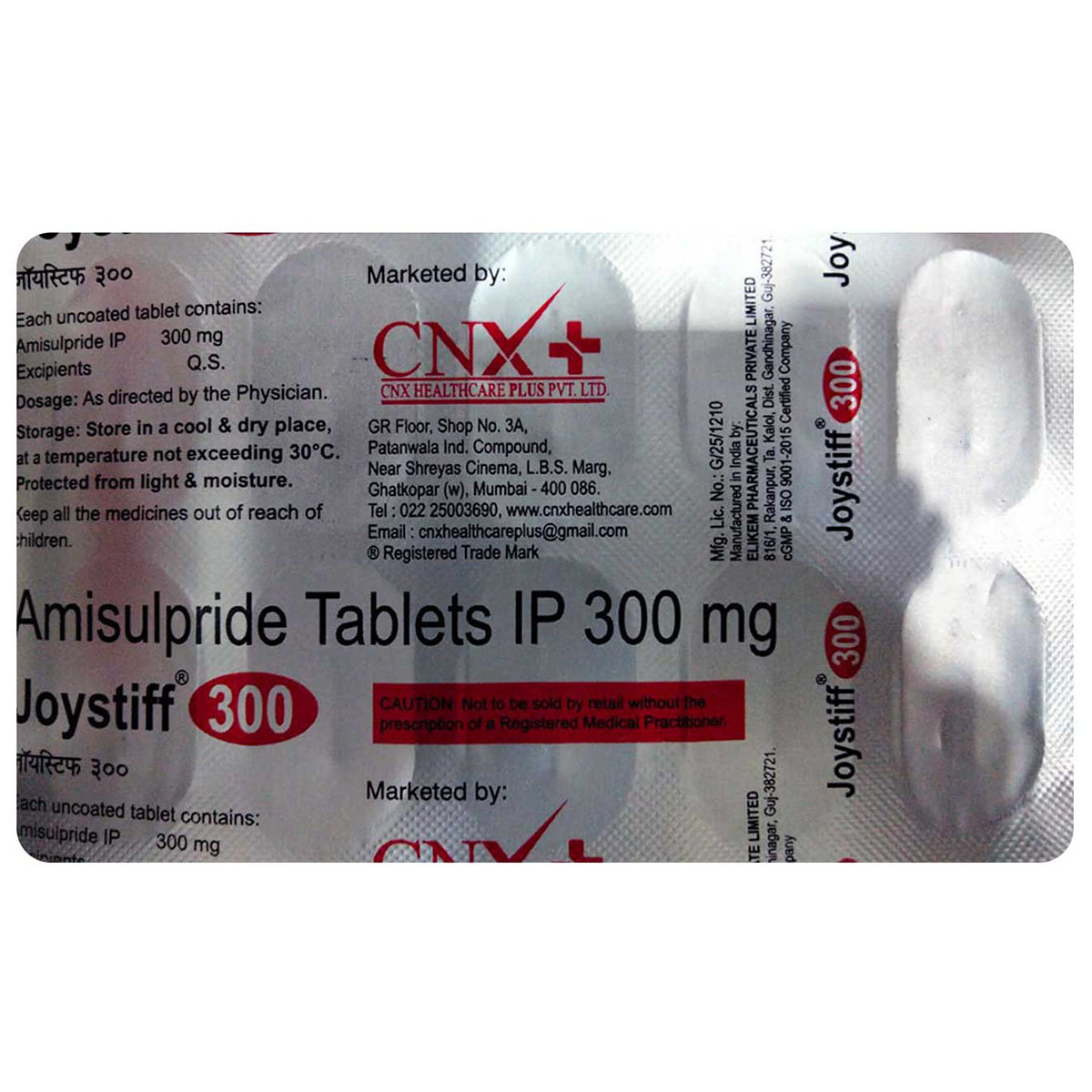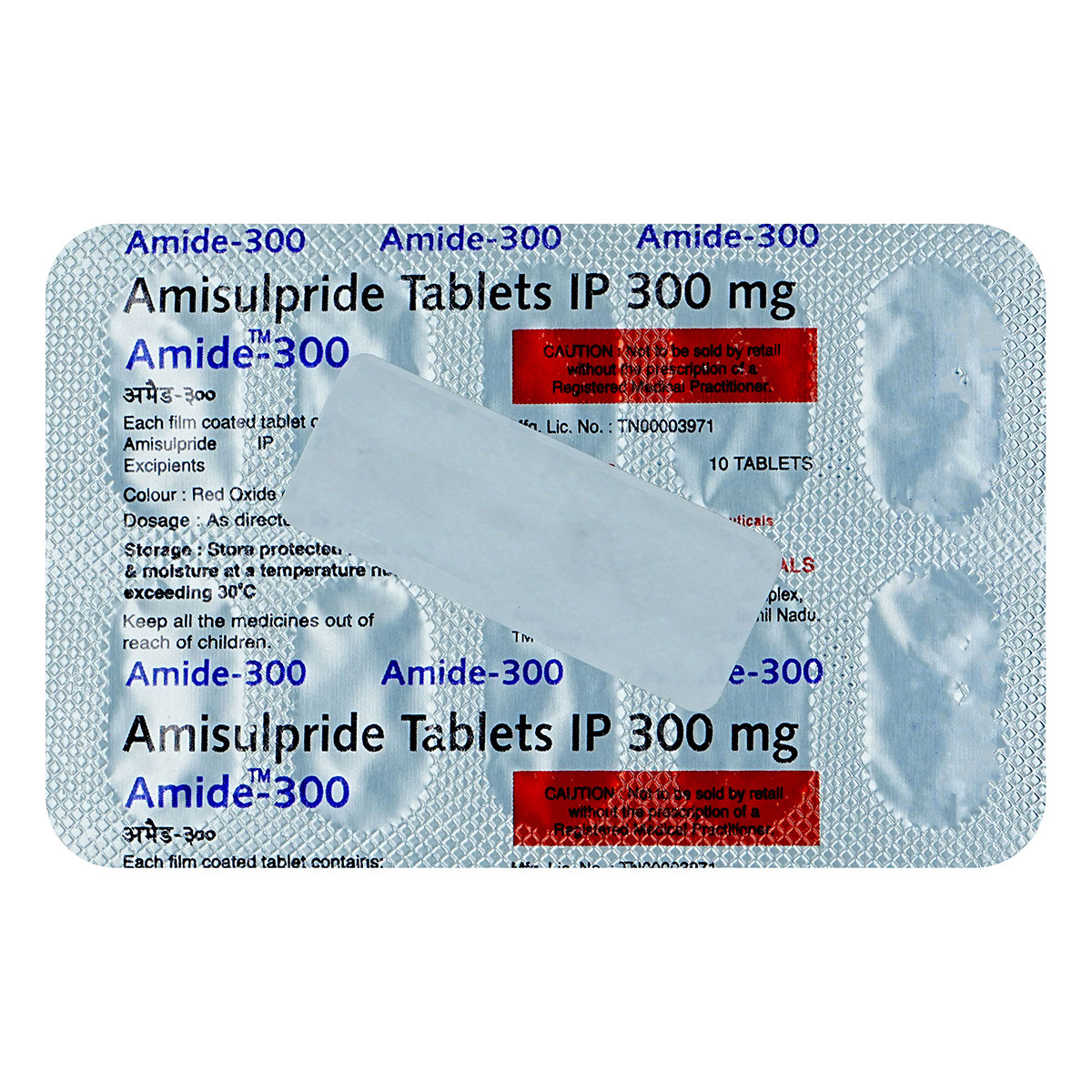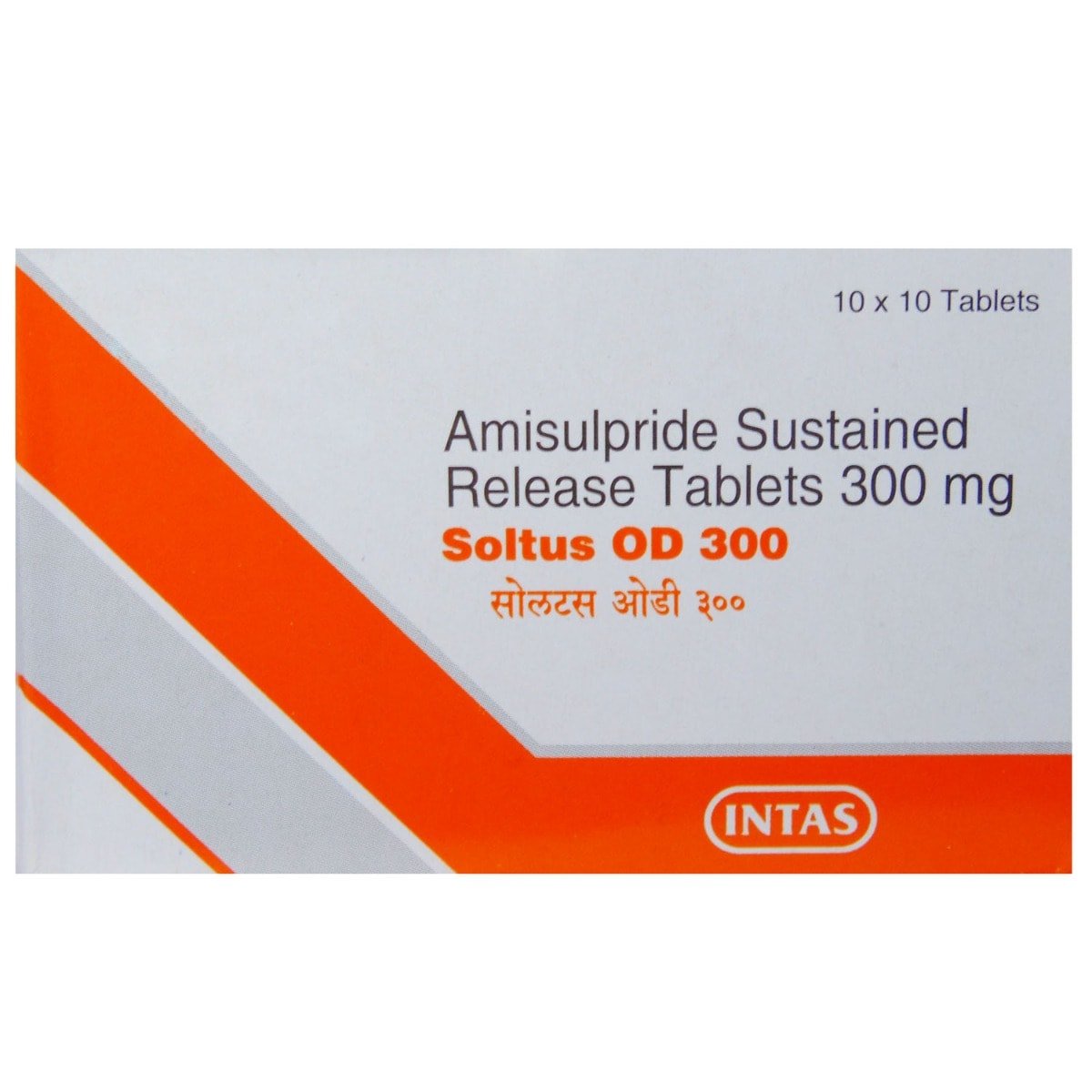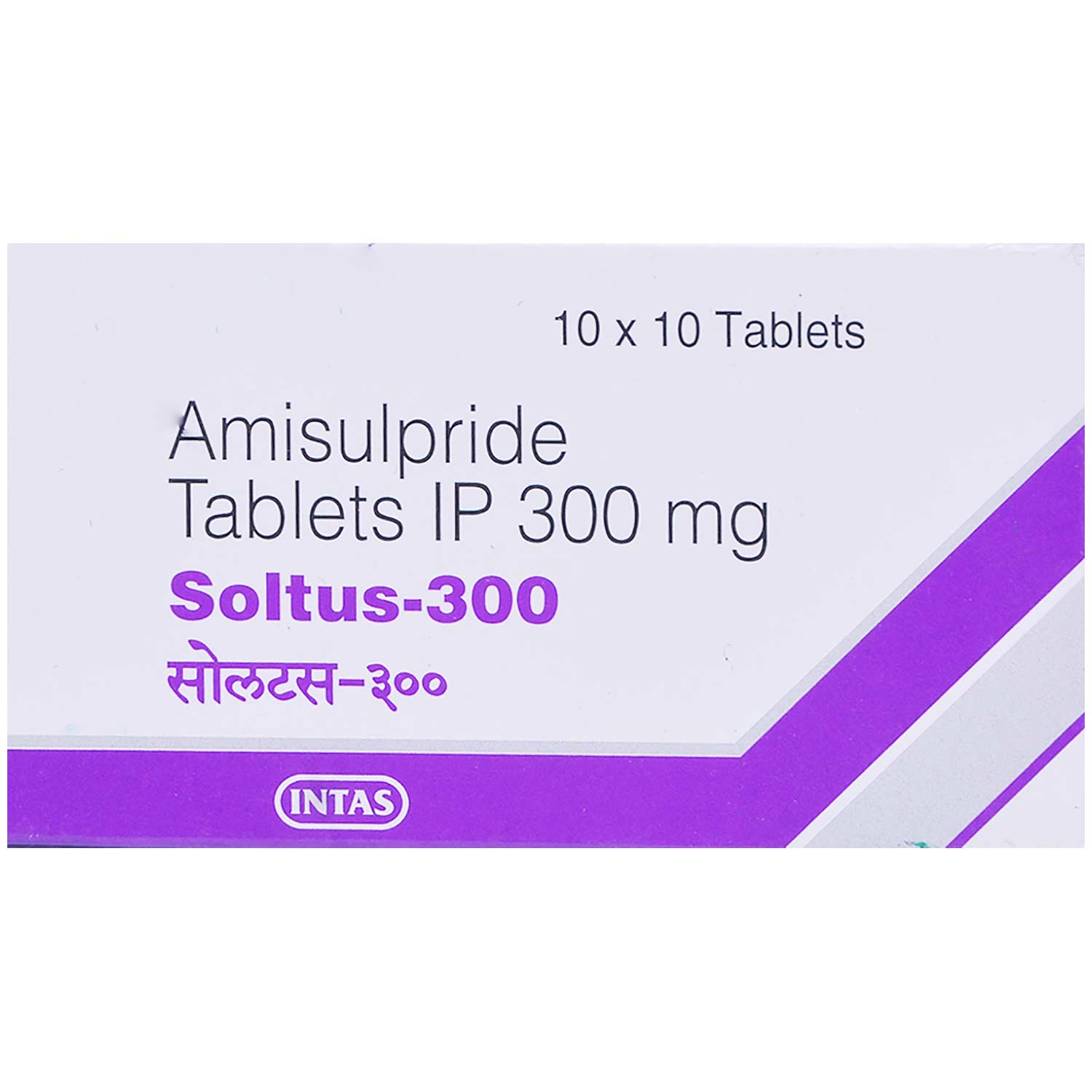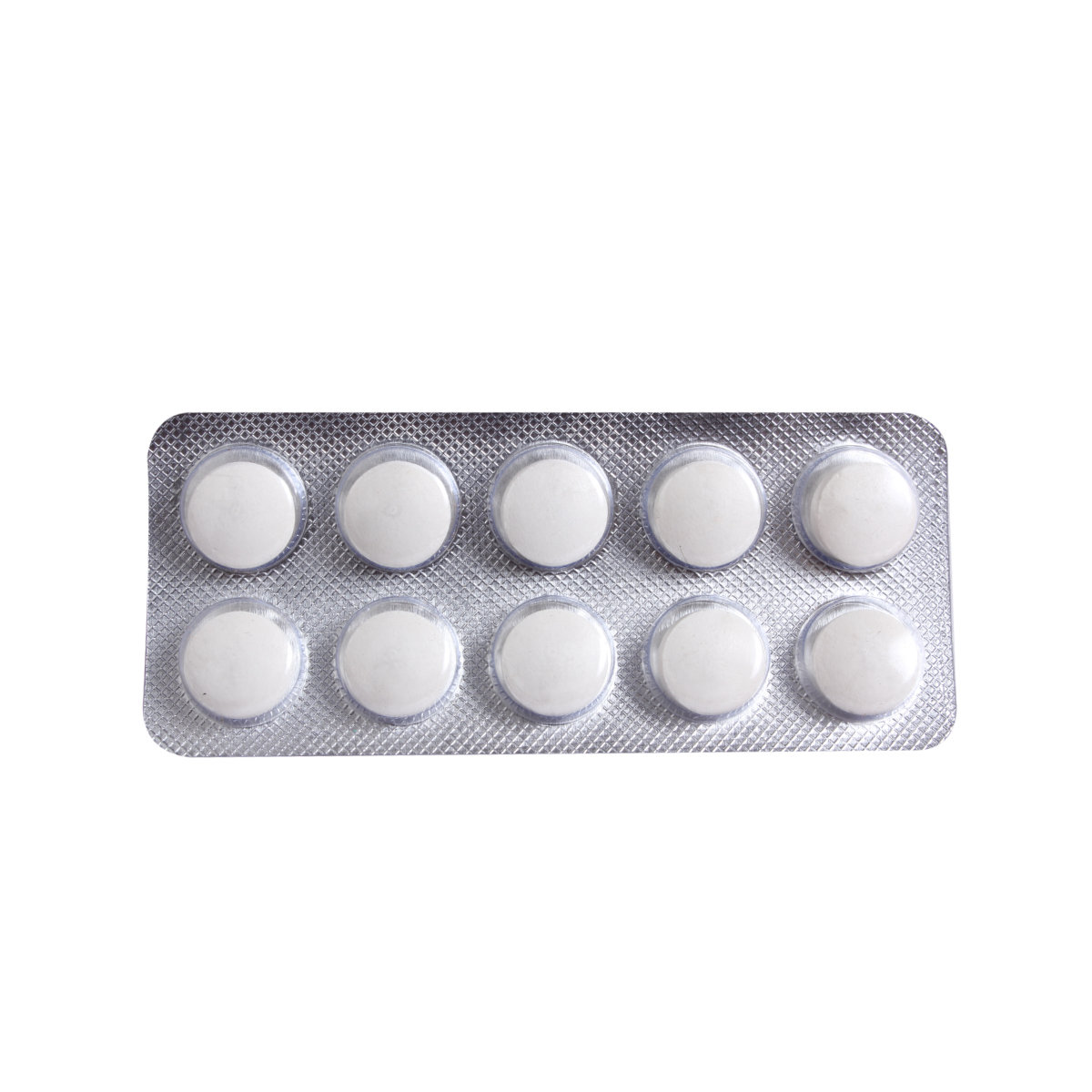- Home
- Amitrend 300Mg Tablet
Amitrend 300Mg Tablet Substitute
Amitrend 300Mg Tablet Substitute
Medicine Composition:
AMISULPRIDE-300MGAll Substitutes & Brand Comparisons
RX
Out of StockSKIZOTUS 300MG TABLET
Emcure Pharmaceuticals Ltd
₹168
(₹15.12 per unit)
41% CHEAPERRX
Out of StockAmiset-300 Tablet 10's
Ardent Life Sciences Pvt Ltd
₹230
(₹20.7 per unit)
19% CHEAPERRX
Out of StockExam-300 Tablet 10's
Alteus Biogenics Pvt Ltd
₹247.5
(₹22.28 per unit)
13% CHEAPERRX
Joypride 300 Tablet 10's
Linux Laboratories Pvt Ltd
₹248
(₹22.32 per unit)
12% CHEAPERRX
Sulpigold 300 mg Tablet 10's
Erikson Pharma
₹250
(₹22.5 per unit)
12% CHEAPERRX
Joystiff 300 Tablet 10's
Cnx Health Care Pvt Ltd
₹270
(₹24.3 per unit)
5% CHEAPERRX
Sulpra-300 Tablet 10's
Reliance Formulation Pvt Ltd
₹281
(₹25.29 per unit)
1% CHEAPERRX
Sulpidon OD 300 Tablet 10's
Arinna Lifesciences Ltd
₹302
(₹27.18 per unit)
5% COSTLIERRX
Skizotus-OD 300 Tablet 10's
Emcure Pharmaceuticals Ltd
₹353
(₹31.77 per unit)
23% COSTLIERRX
Amide 300 mg Tablet 10's
Icon Life Sciences
₹384
(₹34.56 per unit)
34% COSTLIERRX
Sulpitac 300 Tablet 10's
Sun Pharmaceutical Industries Ltd
₹426.5
(₹38.39 per unit)
49% COSTLIERRX
Soltus OD 300 Tablet 10's
Intas Pharmaceuticals Ltd
₹437.5
(₹39.38 per unit)
53% COSTLIERRX
Joykem ODT 300 Tablet 10's
Alkem Laboratories Ltd
₹440.5
(₹39.65 per unit)
54% COSTLIERRX
Soltus 300 Tablet 10's
Intas Pharmaceuticals Ltd
₹456.5
(₹41.09 per unit)
60% COSTLIERRX
Amazeo 300 Tablet 10's
Torrent Pharmaceuticals Ltd
₹470
(₹42.3 per unit)
64% COSTLIER

When Should You Consider Switching from Amitrend 300Mg Tablet ?
Patients may explore substitutes in the following scenarios:
- High monthly cost of Amitrend 300Mg Tablet
- Non-availability in local pharmacies
- Generic recommendation by a doctor
- Side effects or better tolerability with alternatives
What to Know Before Switching
Before you switch from Amitrend 300Mg Tablet to another medicine, here are some important points to keep in mind:
Same salt, different brands:
Most substitutes contain the same active ingredient - AMISULPRIDE-300MG, but the fillers, coating, or manufacturing quality may vary slightly.
Consult your doctor first:
Even if the salt is the same, your doctor can confirm if the substitute is right for your condition, dosage, and health history.
Watch out for allergies or reactions:
Some people may react differently to certain brands due to inactive ingredients. If you notice any side effects, inform your doctor immediately.
Price ≠ effectiveness:
A lower-priced substitute doesn't mean it's less effective. Many generic medicines work just as well as branded ones.
Check the dosage form and strength:
Always match the substitute’s strength (e.g., 5mg, 10mg) and form (tablet, capsule, syrup) with what your doctor prescribed.
Uses
Amitrend 300Mg Tablet is used in the treatment of schizophrenia, postoperative nausea and vomiting (PONV). The detailed uses of Amitrend 300Mg Tablet are as follows:
- Schizophrenia: Amitrend 300Mg Tablet is used in the treatment of both acute and chronic schizophrenia, helping to manage symptoms like hallucinations, delusions, and disorganized thinking, and improving quality of life and social functioning.
- Preventing Postoperative Nausea: Amitrend 300Mg Tablet helps to prevent nausea that occurs after surgery, reducing patient discomfort and promoting smoother recovery.
- Treating Postoperative Vomiting: Amitrend 300Mg Tablet helps treat vomiting that occurs after surgery, minimizing complications and supporting patient well-being.
Medicinal Benefits
Amitrend 300Mg Tablet contains Amisulpride, a group of medicines called antipsychotics used to treat a mental illness called schizophrenia and bipolar disorder. Additionally, Amitrend 300Mg Tablet has anti-emetics properties used either in monotherapy or in combination with other antiemetic drugs to prevent nausea and vomiting, which might occur after surgery. The key action of Amitrend 300Mg Tablet is to block some of the brain's dopamine receptors and correct dopamine's overactivity, thereby producing a calming effect in the brain. Altogether, Amitrend 300Mg Tablet may help decrease hallucinations and help you think more clearly and positively about yourself, feel less agitated and take a more active part in everyday life.
FAQs
The substitutes of Amitrend 300Mg Tablet contain the same active salt(s) - AMISULPRIDE-300MG. However, they may differ in price, manufacturing quality, and inactive ingredients. Speak to your doctor to find a suitable option.
Switching to a generic substitute medicine in the place of Amitrend 300Mg Tablet is often possible if it has the same salt, strength, and dosage form. But always check with your doctor before making any changes to your medication.
Generics versions of Amitrend 300Mg Tablet are typically more affordable because they don’t include the original brand's research, development, and marketing costs. They contain the same active ingredient and are approved for safety and effectiveness.
Most people don’t notice any difference. However, some may react to different fillers or coatings. If you notice any unusual symptoms after switching, consult your doctor.
Make sure the new medicine has the same active salt, strength, dosage form. Always confirm the change with your doctor or pharmacist.
Substitutes of Amitrend 300Mg Tablet meet the same safety and efficacy standards as Amitrend 300Mg Tablet , but small differences in absorption or formulation can exist. A doctor can help you choose the right one for your needs.
Yes. Substitutes of Amitrend 300Mg Tablet may vary in color, size, or shape due to differences in manufacturing and branding, but this does not affect how they work.
Yes, it’s generally safe to switch between multiple substitutes of Amitrend 300Mg Tablet if they have the same salt and strength. However, always inform your doctor so they can monitor how your body responds.
Yes, many people safely use substitutes of Amitrend 300Mg Tablet for long-term treatment. Just ensure it’s done under medical supervision.
If your symptoms stay under control or lab results remain stable, the substitute for Amitrend 300Mg Tablet is likely working well. Regular follow-ups with your doctor are important.
Absolutely. Even with the same salt, small differences can affect how your body responds when switching from Amitrend 300Mg Tablet to its substitute. Always consult your doctor before switching.
Amitrend 300Mg Tablet is used to treat long-term (chronic) schizophrenia and postoperative nausea/vomiting. Additionally, Amitrend 300Mg Tablet is used either in monotherapy or in combination with other antiemetic drugs to prevent nausea and vomiting, which might occur after surgery. The key action of Amitrend 300Mg Tablet is to block some of the brain's dopamine receptors and correct dopamine's overactivity, thereby producing a calming effect in the brain.
Amitrend 300Mg Tablet contains Amisulpride, which works by modulating certain chemical messengers (dopamine D2) in the brain, which helps regulate mood, behaviour, nausea and vomiting.
Amitrend 300Mg Tablet can be used to treat psychotic disorders like schizophrenia, bipolar disorder and depression. However, you should not take this medication without a doctor’s advice.
Amitrend 300Mg Tablet may affect fertility as it may cause hyperprolactinemia (excessive levels of prolactin hormone in the blood) resulting in amenorrhea (absence of menstrual periods), anovulation (lack of egg release) and impaired fertility.
You are not recommended to stop taking Amitrend 300Mg Tablet without consulting your doctor as it may worsen the condition or cause recurring symptoms. Therefore, take Amitrend 300Mg Tablet for as long as your doctor has prescribed it, and if you experience any difficulty while taking Amitrend 300Mg Tablet , please consult your doctor so that the dose may be gradually reduced.
Amitrend 300Mg Tablet is not recommended for dementia (loss of memory or other mental abilities) patients especially in elderly people as it may cause severe adverse effects including stroke. Therefore, it is advised to inform your doctor if you have dementia or history of stroke before taking Amitrend 300Mg Tablet .
Stopping Amitrend 300Mg Tablet abruptly can cause withdrawal symptoms and stopping it too early could make your illness come back. Please consult your doctor if you want to stop taking Amitrend 300Mg Tablet .
Take Amitrend 300Mg Tablet with caution in patients with diabetes as it may increase the risk of having diabetes. It is advised to monitor your blood sugar levels regularly while taking Amitrend 300Mg Tablet .
Amitrend 300Mg Tablet is not recommended for children as the safety and effectiveness have not been established.
Amitrend 300Mg Tablet should be used with caution and only if prescribed by the doctor in elderly patients due to the possible risk of low blood pressure and sedation.
Amitrend 300Mg Tablet should be used in patients with kidney diseases only when prescribed by a doctor. Dose adjustment and regular monitoring of electrolytes may be required as Amitrend 300Mg Tablet may alter electrolyte levels in the body.
Amitrend 300Mg Tablet may cause sleepiness and drowsiness. Do not drive or operate machinery unless you are alert.
Amitrend 300Mg Tablet should be taken at the same time daily or as prescribed by the doctor.
Amitrend 300Mg Tablet modulates certain chemical messengers (dopamine D2) in the brain, which helps regulate mood and behaviour.
No, Amitrend 300Mg Tablet is not indicated for anxiety. It is used to treat schizophrenia and postoperative nausea and vomiting.
Do not take Amitrend 300Mg Tablet if you are allergic (hypersensitive) to amisulpride or any other ingredients present in this medicine or have a medical history of prolactin-dependent tumour or breast cancer, phaeochromocytoma (a tumour on the adrenal gland), or pituitary tumour.
No, Amitrend 300Mg Tablet has no habit-forming tendency and is not addictive.
Withdrawal symptoms of Amitrend 300Mg Tablet are nausea, vomiting, difficulty sleeping, sweating, extreme restlessness, abnormal movements, or muscle stiffness.
Amitrend 300Mg Tablet may cause side effects like dryness in the mouth, constipation, weight gain, decreased blood pressure, dystonia (involuntary muscle contractions), akathisia (inability to stay still), parkinsonism, and increased prolactin level in blood. Most of these side effects of Amitrend 300Mg Tablet do not require medical attention and gradually resolve over time. However, if the side effects persist for a longer duration, consult your doctor immediately.
Buy best C.n.s Drugs products by
Intas Pharmaceuticals Ltd
Sun Pharmaceutical Industries Ltd
Torrent Pharmaceuticals Ltd
Alkem Laboratories Ltd
Alteus Biogenics Pvt Ltd
Abbott India Ltd
Cipla Ltd
Micro Labs Ltd
Lupin Ltd
Tripada Healthcare Pvt Ltd
D D Pharmaceuticals Pvt Ltd
Ipca Laboratories Ltd
Arinna Lifesciences Ltd
Icon Life Sciences
Linux Laboratories Pvt Ltd
Mankind Pharma Pvt Ltd
Cnx Health Care Pvt Ltd
East West Pharma India Pvt Ltd
La Renon Healthcare Pvt Ltd
Emcure Pharmaceuticals Ltd
Eris Life Sciences Ltd
Leeford Healthcare Ltd
Talent India Pvt Ltd
Consern Pharma Ltd
Tas Med India Pvt Ltd
Macleods Pharmaceuticals Ltd
Dr Reddy's Laboratories Ltd
Zydus Healthcare Ltd
Matias Healthcare Pvt Ltd
Jagsam Pharma
Troikaa Pharmaceuticals Ltd
Ikon Pharmaceuticals Pvt Ltd
Sigmund Promedica
Aristo Pharmaceuticals Pvt Ltd
Ardent Life Sciences Pvt Ltd
Shine Pharmaceuticals Ltd
Zydus Cadila
Theo Pharma Pvt Ltd
Wockhardt Ltd
Lifecare Neuro Products Ltd
Propel Healthcare
Crescent Formulations Pvt Ltd
Mesmer Pharmaceuticals
Matteo Health Care Pvt Ltd
Reliance Formulation Pvt Ltd
Ajanta Pharma Ltd
Capital Pharma
Morepen Laboratories Ltd
Neon Laboratories Ltd
Lyf Healthcare
Med Manor Organics Pvt Ltd
Msn Laboratories Pvt Ltd
Akumentis Healthcare Ltd
Sanix Formulation Pvt Ltd
Pulse Pharmaceuticals
Brainwave Healthcare Pvt Ltd
Hetero Healthcare Pvt Ltd
Cyrus Remedies Pvt Ltd
Sanofi India Ltd
Solvate Laboratories Pvt Ltd
Elder Pharmaceuticals Ltd
Novartis India Ltd
Psyco Remedies Ltd
Alniche Life Sciences Pvt Ltd
Medishri Healthcare Pvt Ltd
Quince Lifesciences Pvt Ltd
Crescent Therapeutics Ltd
Hbc Life Sciences Pvt Ltd
Mova Pharmaceutical Pvt Ltd
Prevego Healthcare & Research Pvt Ltd
Cadila Healthcare Ltd
Tripada Lifecare Pvt Ltd
Alembic Pharmaceuticals Ltd
Kivi Labs Ltd
Solis Pharmaceuticals
Talin Remedies Pvt Ltd
Infivis Life Care
Serotonin Pharmaceuticals Llp
Glenmark Pharmaceuticals Ltd
Aareen Healthcare Pvt Ltd
Primus Remedies Pvt Ltd
Trion Pharma India Llp
A N Pharmacia Laboratories Pvt Ltd
Cadila Pharmaceuticals Ltd
Gagnant Healthcare Pvt Ltd
Vasu Organics Pvt Ltd
Wallace Pharmaceuticals Pvt Ltd
Crescent Pharmaceuticals
Divine Savior Pvt Ltd
Glarizonto Pharma Pvt Ltd
Knoll Healthcare Pvt Ltd
Lia Life Sciences Pvt Ltd
Lyceum Life Sciences Pvt Ltd
Maneesh Pharmaceuticals Ltd
Suraksha Pharma Pvt Ltd
Zuventus Healthcare Ltd
Arches Pharmaceuticals
Dycine Pharmaceuticals
Lincoln Pharmaceuticals Ltd
Pfizer Ltd



